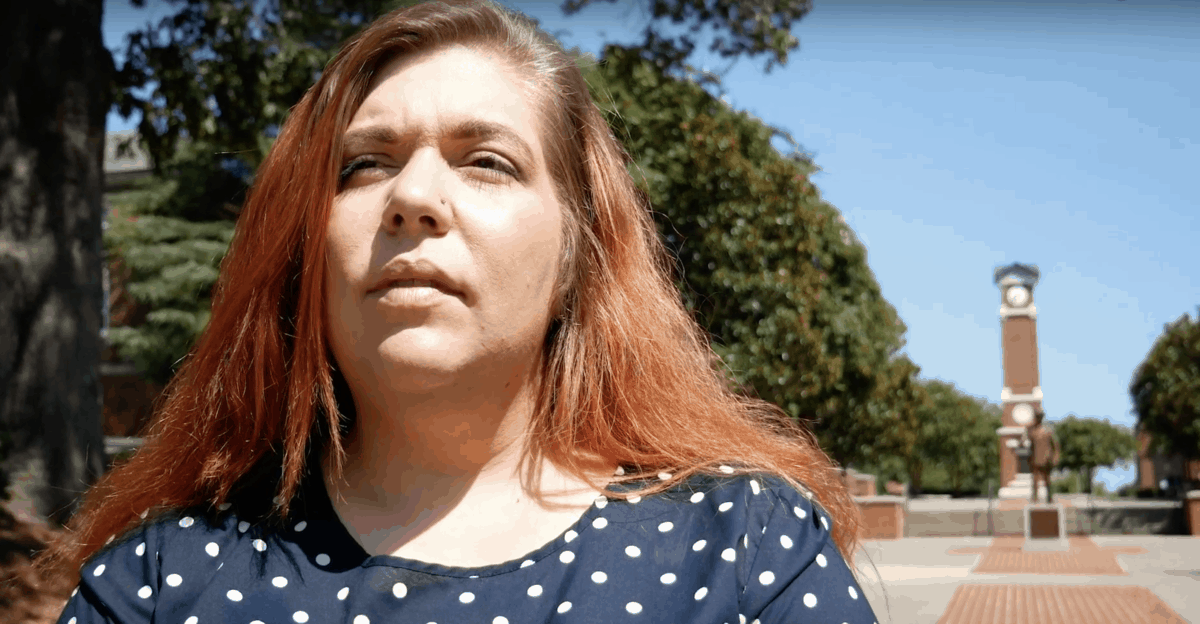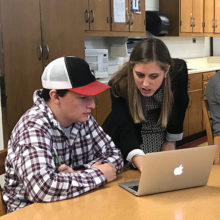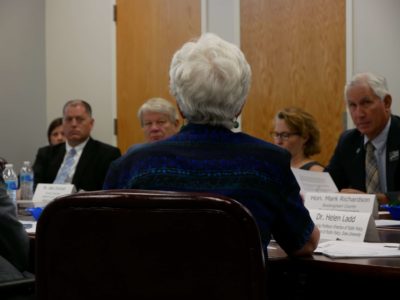
When Mallory Calfee’s car was totaled in an accident, she didn’t know how she was going to get to class at Forsyth Technical Community College. Calfee had been commuting from Mount Airy to Winston-Salem and started worrying her studies and role as student body president were in jeopardy.
“I was worried that I was gonna lose where I was in school,” Calfee said. “I was gonna have to drop out. I was gonna lose my presidency. All the things that I was doing that, you know, I felt really good about all came crashing down over $850.”
Calfee graduated last year with an associate degree in science and is studying at Winston-Salem State University with hopes of becoming a research scientist. She persisted with help from the Finish Line Grant program which allows community college students who are at least half way done with their studies to apply for up to $1,000 per semester to cover financial emergencies.
Watch the videos below to hear from two students who received Finish Line Grants.
On Monday, community college staff and members of workforce development boards across the state gathered in Greensboro to share lessons learned from the first year of implementation of the Finish Line Grants program. Launched by Gov. Roy Cooper in 2018, the Finish Line Grants program is a federally-funded grant that provides emergency financial assistance to community college students.
The goal of the Finish Line Grants program is to help students with unexpected financial emergencies so they can stay in school and attain a credential or degree. To be eligible to receive a grant, students must have completed 50% of their degree or credential and have a minimum GPA of 2.0. Students can get a maximum of $1,000 per semester.
“Our vision was to ensure that no student drops out of training due to a car repair or hospital bill or other financial emergency,” Gov. Cooper said in a video message to attendees at the symposium. “What we’re hearing from students is that this small investment in their future is changing the course of their lives.”
So far, 2,000 grants have been awarded to community college students. Peter Hans, president of the North Carolina Community College System, said in a video message, “2,000 grants awarded — that’s over 2,000 lives touched [and] educations kept on track.”
North Carolina is one of only three states that has a statewide emergency financial aid program, meaning there are few models to look to for best practices. The Finish Line Grants Symposium allowed colleges and workforce boards to share lessons learned as they have designed and iterated their programs over the past year.
One of the big challenges shared by community colleges and workforce boards was coming up with a payment process that gets students access to the grants as soon as possible. The program requires colleges and workforce boards to collaborate to receive funding for their students but does not outline a particular strategy for administering the grants, so each region has come up with its own process to do so. Some colleges use food and gas cards to get resources to students as quickly as possible. Others use a credit card to pay vendors, such as a car repair shop, and then receive funds from their workforce board after the payment.
Another challenge colleges faced was making students aware of the grants. This year, six colleges had Awake58 fellows, a community college student fellowship started by EdNC.org. The first cohort of fellows focused on raising awareness of Finish Line Grants on their campuses. Colleges shared that word of mouth among students was probably the most effective way to get the word out about the grants.
While many of the lessons shared concerned the more technical aspects of administering a federal grant, one of the big takeaways was the importance of communication and collaboration between community college personnel, workforce boards, and students. Several college and workforce board representatives shared that the successful implementation of their grants can be traced to the relationships and communication between the college and the workforce board.
For more highlights from the symposium, read my Twitter thread here.



